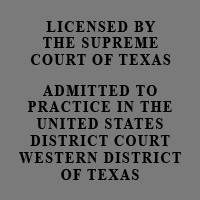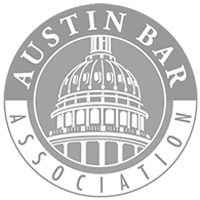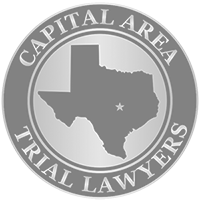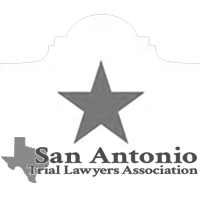Medicare Referral Kickback Lawyer & Medicaid Referral Kickback Lawyer Handles Medicare Referral Kickback Lawsuits, Medicaid Referral Kickback Lawsuits, Federal Health Program Medical Provider Referral Lawsuits and other Qui Tam Health Care Fraud Whistleblower Lawsuits by Medicare Referral Kickback Lawyer & Medicaid Referral Kickback Lawyer Jason S. Coomer
In 1972, the United States Congress passed the anti-kickback statute which made it illegal for providers, including doctors, to knowingly and willfully accept bribes or other forms of remuneration in return for generating Medicare, Medicaid or other federal healthcare program business. The federal anti-kickback law's main purpose was to protect patients and federal health care programs from fraud and abuse by curtailing the corrupting influence of money on health care decisions. The legislation prevents payoffs to those who have the power to influence health care decisions. This prohibition removes potential economic incentives that could influence health care providers to refer or recommend medical goods and services that are medically inappropriate, medically unnecessary, of poor quality, or even harmful to a vulnerable patient population. This legislation protects federal health care programs from difficult to detect kickback referrals and services as well as works with other laws to provide incentives for whistle blowers that are aware of medical providers that are wrongfully taking money to benefit from disclosing these unlawful kickbacks.
If you are a health care professional, hospital administrator, benefit coordinator, or whistle blower that is aware of a health care provider accepting kickbacks for generating Federal Health Care Program referrals and services, feel free to contact Federal Health Care Program Referral Kickback Attorney, Jason Coomer via e-mail message or use our submission form about a potential whistleblower, health care fraud, insurance fraud, or qui tam lawsuit.
Federal Anti-Kickback Statute Lawsuits, Federal Health Care Program Referral Claim Lawsuits, Federal Health Care Program Medical Supply Bribery Claim Lawsuits, and Benefits for Generating Medicare, Medicaid, Champus/Tricare, and other Federal Health Care Program Lawsuits
The Anti-Kickback statute prohibits any person or business entity from making or accepting payment to induce or reward any person for referring, recommending or arranging for the purchase of any item or service for which payment may be made under a federally-funded health care program. The statute prohibits kickbacks, bribes, inducements, rewards, and other economic incentives that induce physicians to refer patients for services or recommend purchase of medical supplies that will be reimbursable under government health care programs.
Health Care Provider claims for reimbursement to federal health care programs for services or medical supplies that are the result of bribes, kickbacks, or other economic incentives are false claims and are subject to potential Federal Health Care Program False Claim Lawsuits including Federal Anti-Kickback Statute Lawsuits, Federal Health Care Program Referral Claim Lawsuits, and Federal Health Care Program Medical Supply Bribery Claim Lawsuits.
Failure of a health care provider to comply with the Anti-Kickback Statute is a precondition to participation in federal health care programs and violations of the Anti-Kickback Statute can result in loss of funding, payments, and reimbursements from Medicare, Medicaid, and other Federal Health Care Programs.
The Anti-Kickback Statute "Safe Harbor" Provisions
Because the Anti-Kickback Statute was initially broad on its face, concerns arose among health care providers that some beneficial commercial arrangements were prohibited. Responding to these concerns, Congress authorized "safe harbors" for various payment and business practices that, while potentially prohibited by the law, would not be prosecuted.
The Antikickback Statute contains certain exceptions or "safe habors", which allow conduct that would otherwise violate the statute including allowing the Secretary of Department of Health and Human Service to promulgate regulations which identify practices which do not violate the Antikickback Statute. Some of these safe habors can be found at 42 C.F.R. § 1001.952.
The Anti-Kickback Statute and the Stark Statute
The Stark Statute is named after California Rep. Pete Stark who authored this legislation. The purpose of the law is to prohibit physician self-referrals and prevents a physician from referring patients for certain designated health services to any entity with which the physician has a financial interest.. The law applies to any physician who provides care to Medicare or Medicaid and is not as broad as the Anti-Kickback Statute.
The Anti-Kickback Statute and Stark Statutes are separate statutes, but are also refer to one another, sometimes making compliance with one contingent on complying with the other. Both are intended to prevent health care providers from making referrals for the purpose of financial benefit to themselves instead of for the patient's benefit.
For more information on the Stark Statute or Federal False Claim Lawsuits from violations of the Stark Statute, go to the following webpage on Stark Statute Violation False Claim Lawsuits.
42 U.S.C. § 1320a-7b(b) of the Anti-Kickback Statute
Sec. 1320a-7b. - Criminal penalties for acts involving Federal health care programs
(a) Making or causing to be made false statements or representations
Whoever -
(1) knowingly and willfully makes or causes to be made any false statement or representation of a material fact in any application for any benefit or payment under a Federal health care program (as defined in subsection (f) of this section),
(2) at any time knowingly and willfully makes or causes to be made any false statement or representation of a material fact for use in determining rights to such benefit or payment,
(3) having knowledge of the occurrence of any event affecting
(A) his initial or continued right to any such benefit or payment, or
(B) the initial or continued right to any such benefit or payment of any other individual in whose behalf he has applied for or is receiving such benefit or payment, conceals or fails to disclose such event with an intent fraudulently to secure such benefit or payment either in a greater amount or quantity than is due or when no such benefit or payment is authorized,
(4) having made application to receive any such benefit or payment for the use and benefit of another and having received it, knowingly and willfully converts such benefit or payment or any part thereof to a use other than for the use and benefit of such other person,
(5) presents or causes to be presented a claim for a physician's service for which payment may be made under a Federal health care program and knows that the individual who furnished the service was not licensed as a physician, or
(6) for a fee knowingly and willfully counsels or assists an individual to dispose of assets (including by any transfer in trust) in order for the individual to become eligible for medical assistance under a State plan under subchapter XIX of this chapter, if disposing of the assets results in the imposition of a period of ineligibility for such assistance under section 1396p(c) of this title,
shall
(i) in the case of such a statement, representation, concealment, failure, or conversion by any person in connection with the furnishing (by that person) of items or services for which payment is or may be made under the program, be guilty of a felony and upon conviction thereof fined not more than $25,000 or imprisoned for not more than five years or both, or
(ii) in the case of such a statement, representation, concealment, failure, conversion, or provision of counsel or assistance by any other person, be guilty of a misdemeanor and upon conviction thereof fined not more than $10,000 or imprisoned for not more than one year, or both. In addition, in any case where an individual who is otherwise eligible for assistance under a Federal health care program is convicted of an offense under the preceding provisions of this subsection, the administrator of such program may at its option (notwithstanding any other provision of such program) limit, restrict, or suspend the eligibility of that individual for such period (not exceeding one year) as it deems appropriate; but the imposition of a limitation, restriction, or suspension with respect to the eligibility of any individual under this sentence shall not affect the eligibility of any other person for assistance under the plan, regardless of the relationship between that individual and such other person.
(b) Illegal remunerations
(1) Whoever knowingly and willfully solicits or receives any remuneration (including any kickback, bribe, or rebate) directly or indirectly, overtly or covertly, in cash or in kind -
(A) in return for referring an individual to a person for the furnishing or arranging for the furnishing of any item or service for which payment may be made in whole or in part under a Federal health care program, or
(B) in return for purchasing, leasing, ordering, or arranging for or recommending purchasing, leasing, or ordering any good, facility, service, or item for which payment may be made in whole or in part under a Federal health care program,
shall be guilty of a felony and upon conviction thereof, shall be fined not more than $25,000 or imprisoned for not more than five years, or both.
(2) Whoever knowingly and willfully offers or pays any remuneration (including any kickback, bribe, or rebate) directly or indirectly, overtly or covertly, in cash or in kind to any person to induce such person -
(A) to refer an individual to a person for the furnishing or arranging for the furnishing of any item or service for which payment may be made in whole or in part under a Federal health care program, or
(B) to purchase, lease, order, or arrange for or recommend purchasing, leasing, or ordering any good, facility, service, or item for which payment may be made in whole or in part under a Federal health care program, shall be guilty of a felony and upon conviction thereof, shall be fined not more than $25,000 or imprisoned for not more than five years, or both.
(3) Paragraphs (1) and (2) shall not apply to -
(A) a discount or other reduction in price obtained by a provider of services or other entity under a Federal health care program if the reduction in price is properly disclosed and appropriately reflected in the costs claimed or charges made by the provider or entity under a Federal health care program;
(B) any amount paid by an employer to an employee (who has a bona fide employment relationship with such employer) for employment in the provision of covered items or services;
(C) any amount paid by a vendor of goods or services to a person authorized to act as a purchasing agent for a group of individuals or entities who are furnishing services reimbursed under a Federal health care program if -
(i) the person has a written contract, with each such individual or entity, which specifies the amount to be paid the person, which amount may be a fixed amount or a fixed percentage of the value of the purchases made by each such individual or entity under the contract, and
(ii) in the case of an entity that is a provider of services (as defined in section 1395x(u) of this title), the person discloses (in such form and manner as the Secretary requires) to the entity and, upon request, to the Secretary the amount received from each such vendor with respect to purchases made by or on behalf of the entity;
(D) a waiver of any coinsurance under part B of subchapter XVIII of this chapter by a Federally qualified health care center with respect to an individual who qualifies for subsidized services under a provision of the Public Health Service Act (42 U.S.C. 201 et seq.);
(E) any payment practice specified by the Secretary in regulations promulgated pursuant to section 14(a) of the Medicare and Medicaid Patient and Program Protection Act of 1987; and
(F) any remuneration between an organization and an individual or entity providing items or services, or a combination thereof, pursuant to a written agreement between the organization and the individual or entity if the organization is an eligible organization under section 1395mm of this title or if the written agreement, through a risk-sharing arrangement, places the individual or entity at substantial financial risk for the cost or utilization of the items or services, or a combination thereof, which the individual or entity is obligated to provide.
(c) False statements or representations with respect to condition or operation of institutions
Whoever knowingly and willfully makes or causes to be made, or induces or seeks to induce the making of, any false statement or representation of a material fact with respect to the conditions or operation of any institution, facility, or entity in order that such institution, facility, or entity may qualify (either upon initial certification or upon recertification) as a hospital, critical access hospital, skilled nursing facility, nursing facility, intermediate care facility for the mentally retarded, home health agency, or other entity (including an eligible organization under section 1395mm(b) of this title) for which certification is required under subchapter XVIII of this chapter or a State health care program (as defined in section 1320a-7(h) of this title), or with respect to information required to be provided under section 1320a-3a of this title, shall be guilty of a felony and upon conviction thereof shall be fined not more than $25,000 or imprisoned for not more than five years, or both.
(d) Illegal patient admittance and retention practices
Whoever knowingly and willfully -
(1) charges, for any service provided to a patient under a State plan approved under subchapter XIX of this chapter, money or other consideration at a rate in excess of the rates established by the State (or, in the case of services provided to an individual enrolled with a medicaid managed care organization under subchapter XIX of this chapter under a contract under section 1396b(m) of this title or under a contractual, referral, or other arrangement under such contract, at a rate in excess of the rate permitted under such contract), or
(2) charges, solicits, accepts, or receives, in addition to any amount otherwise required to be paid under a State plan approved under subchapter XIX of this chapter, any gift, money, donation, or other consideration (other than a charitable, religious, or philanthropic contribution from an organization or from a person unrelated to the patient) -
(A) as a precondition of admitting a patient to a hospital, nursing facility, or intermediate care facility for the mentally retarded, or
(B) as a requirement for the patient's continued stay in such a facility,
when the cost of the services provided therein to the patient is paid for (in whole or in part) under the State plan, shall be guilty of a felony and upon conviction thereof shall be fined not more than $25,000 or imprisoned for not more than five years, or both.
(e) Violation of assignment terms
Whoever accepts assignments described in section 1395u(b)(3)(B)(ii) of this title or agrees to be a participating physician or supplier under section 1395u(h)(1) of this title and knowingly, willfully, and repeatedly violates the term of such assignments or agreement, shall be guilty of a misdemeanor and upon conviction thereof shall be fined not more than $2,000 or imprisoned for not more than six months, or both.
(f) ''Federal health care program'' defined
For purposes of this section, the term ''Federal health care program'' means -
(1) any plan or program that provides health benefits, whether directly, through insurance, or otherwise, which is funded directly, in whole or in part, by the United States Government (other than the health insurance program under chapter 89 of title 5); or
(2) any State health care program, as defined in section 1320a-7(h) of this title
Health Care Billing Fraud Law Suits (Fraud Costs Tax Payers and Consumers Hundreds of Billions of Dollars)
Health Care Expenses in the United States have increased to be over Two Trillion ($2,000,000,000,000.00) Dollars each year. This amount continues to rise as many unnecessary procedures and treatments are performed as well as unscrupulous health care provided fraudulently billing for medical services that are never performed committing billing fraud, insurance fraud, double billing, and other health care fraud that costs hundreds of billions of dollars.
From a taxpayer stand point, health care fraud costs taxpayers between $60 billion and $100 billion each year. This cost increases dramatically when you include other forms of health care fraud including insurance fraud and fraud on patients.
Federal Health Care Program Referral, Bribery, and Billing Fraud Law Suits (Qui Tam Law Suits)
Through Whistle Blower Lawsuits, Qui Tam Lawsuits, and other Federal Health Care Program Fraud Lawsuits, hundreds of billions of dollars have been recovered from individuals and organizations that have committed health care fraud and stolen large amounts of money from the government.
It is extremely important that Medical Professionals, Hospital Administrators, Benefit Coordinators, Accountants, and other Whistle Blowers continue to expose fraudulent billing practices, kickback arrangements, Federal Health Care Program Referrals, Federal Health Care Program Medical Supply Bribery Rings, and unnecessary treatments that cost hundreds of billions of dollars. If you are aware of a large health care company or individual that is defrauding the United States Government out of millions or billions of dollars, contact Medicare, Medicaid, Champus, Tricare, and other Federal Health Care Program Kickback, Fraudulent Referral, Bribery, and Billing Fraud lawyer Jason Coomer. As a Texas Federal Health Care Fraud Lawyer, he works with litigation teams of powerful qui tam lawyers that handle large Health Care Government Fraud Federal False Claims Act cases throughout the nation to blow the whistle on fraud that hurts the United States.
Feel Free to Contact Us with any Questions
Associations




